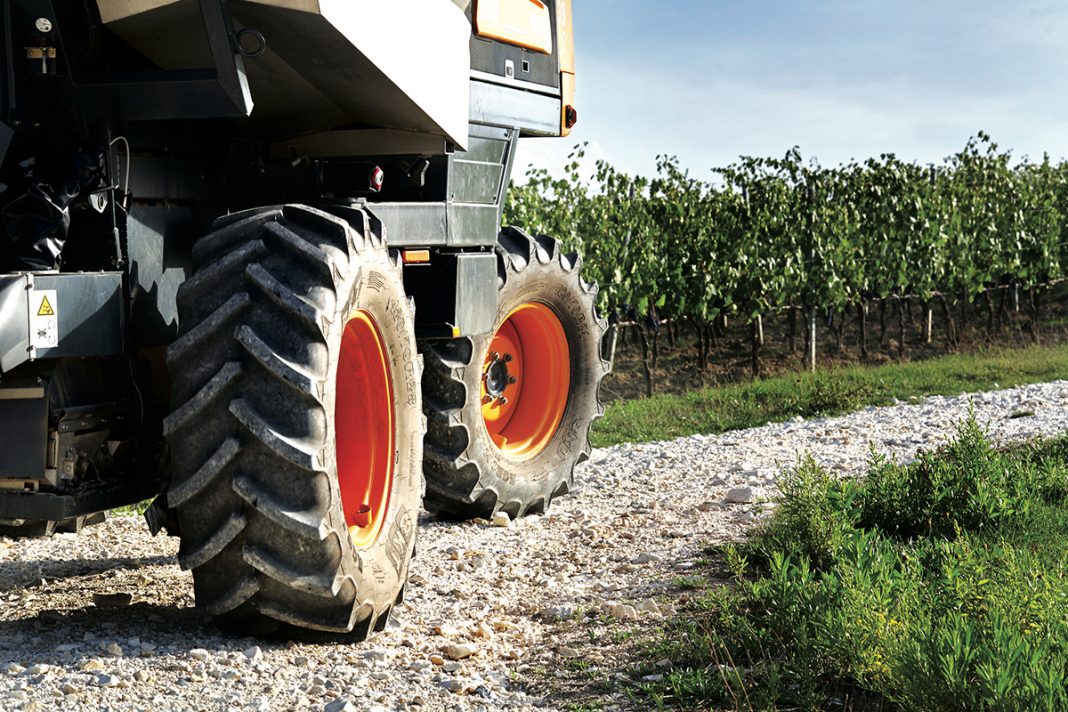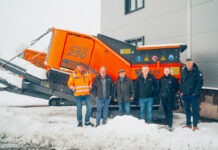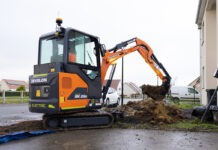Driving a 3-ton piece of agricultural machinery in the fields is one thing; doing the same on slopes is quite a different matter. And it is not just operational difficulties and mechanical effort we are talking of.
It is mainly about the driver’s safety. The risk of rollovers or accidents in certain situations is very high. For this reason, both tractor and tire manufacturers modernize and improve their product ranges every year aiming at increasing safety and performance.
Over the years, BKT has conducted many case studies and collected feedback and data thanks to the constant dialogue with its users. Based on the experience in the field, BKT’s team of experts is able to suggest which product best suits the type of operations required. When it comes to safety, this type of advice becomes even more important.
What do you have to consider when choosing the best tire for operations on slopes?
The factors are inflation pressure, tread, width, structure, footprint, compound, and size. All these details must be aligned with other parameters, depending on the type of equipment on which the tires will be mounted, the type of operations, operating hours and conditions, inclination of the terrain, and so forth. In a nutshell: a choice for experts.
Tire pressure.
If you work on slopes, this is the most important parameter. A common risk of an inadequately inflated tire is that lateral forces make the tire slip from the rim.When a slope exceeds 11 degrees, tires undergo strong mechanical stress on sidewall and bead, resulting in damage and potential bead breaking.
Or even worse: If you use, for example, radial tires on slopes with the recommended inflation pressure values for normal agricultural use, these tires may not be able to withstand the additional weight due to the increase in lateral gravity forces. This could lead to potential and dangerous overturns of the equipment.
The recommended minimum pressure for normal conditions is 0.6 bar (9 psi), but when operating on slopes with an inclination of up to 20%, pressure can be increased up to +25% without exceeding the maximum nominal tire inflation pressure value. The pressure is to be increased as to the specific slope. It is hence recommended to conduct a careful analysis of the load distribution.
Technically speaking, during uphill or downhill slope operations, there are several advantages deriving from increased inflation pressure such as improved bead-wheel adherence (providing greater stability of the bead on the bead-rim contact surface); reduced sidewall flexion; and an optimal footprint on the ground that will facilitate the correct rolling of the tire, optimizing its traction.
Tire tread and size.
These elements also affect safety and performance of tires on slopes. Radial tires are generally the most common products used in hill applications, for both tractors and combines. They actually have a flatter and wider footprint on the ground compared to conventional tires, thus providing better traction and lateral stability.
The right tread pattern enhances equipment performance on slimy or slippery grass and enables to roll without damaging the ground on which operations are done.
Let us not forget that less slippage means better efficiency, resulting in more fuel economy and less tire wear. As far as the tire size is concerned, tires with a smaller diameter and a larger width are preferable since they guarantee better stability.
Here are the products that BKT offers for applications on slopes:
TRAC SUPER–This radial tire is particularly suitable for applications on large surfaces, such as meadows, parks, and wide road transfers. It provides extraordinary stability on terrains with slopes.
Its steel-belted structure ensures a smooth ride in combination with top traction performance and stability. These features make it particularly suitable for equipment that operates on hills. To achieve an optimal load capacity under these conditions, the equipment needs a wide tire with a tread design that provides both traction and stability in every situation.
AGRIMAX RT 765– This BKT 70 series tire ensures optimal traction and comfort on all surfaces at any time thanks to its large contact patch. It is suitable for farming machinery operating on light and medium slopes in heavy-duty applications such as soil tillage, field and road travel, vineyard harvesting and spraying, while ensuring reduced soil compaction. With excellent self-cleaning properties, AGRIMAX RT 765 is available in numerous sizes, some of which are steel-belted for even greater strength. Some sizes of this product are also ideal for isodiametric tractors.








